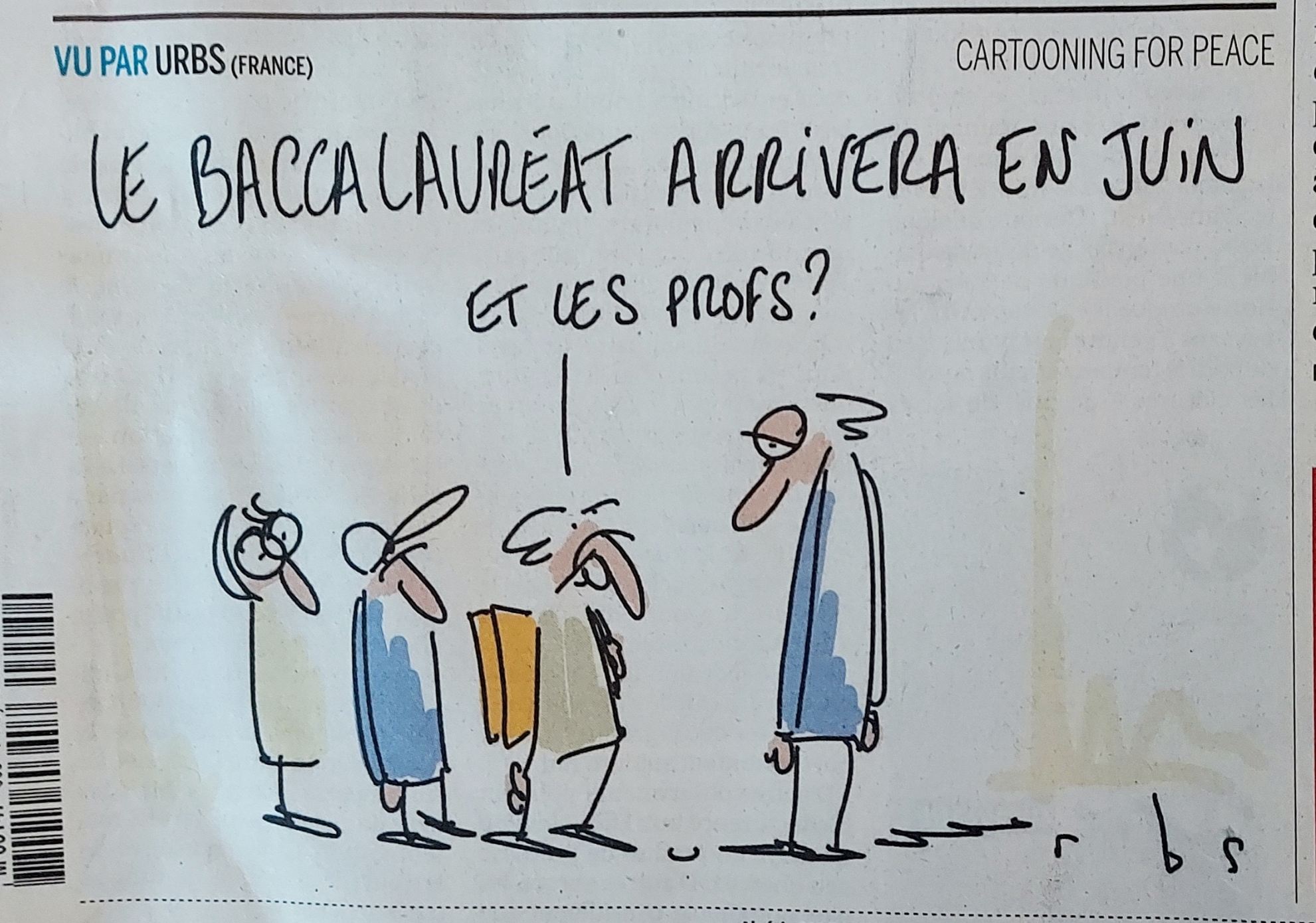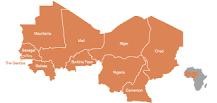| It’s all so different in France…? | ||
| |
I’ve just taken a look at a few of today’s newspapers (5th September2023). There is Le Monde (the equivalent of the Guardian), Le Figaro (definite Telegraph leanings) and Le Dauphiné Libre, a newspaper covering stories from the Haute Savoie. The headline on the last of these was ‘Le cri de détresse des associations’. Mainly the story is about the French cost of living crisis, something which has hit various charities hard. Something they have been saying for quite a long time. But now the one closest to French hearts - ‘Les Restos du Cœur’ – has just said that it is in significant financial difficulty. It was established in 1985 by the famous comedian, Coluche, to provide food banks and soup kitchens along with other necessities for the poor. Every year there is a TV appeal, rather like our Comic Relief, which raise tens of millions of euros. But they are now running out of money and having to turn people away. This is because of a substantial increase in the number of people turning up at their doors and increases in the price of the food they have to buy, together with the increased cost of electricity. Such is the central position of the Association within French consciousness, however, that within just a few minutes of the appeal by the boss of Les Restos, not only had Jean-Luc Mélenchon, the leader of an extreme left-wing opposition party, ‘La France Insoumise’, said that the raison d’etre of his party was ‘la solidarité humaine’, but, more usefully, a government minister had confirmed an immediate grant of 15 million euros (although it seems that it is not all new money). The announcement of its parlous state also led the (currently) second richest man in the world Bernard Arnault of LVMH (the owner of numerous luxury brands) to make a donation of 10 million euros. Many other big companies have since made similar gestures. You would think that Jean-Luc Mélenchon would be happy that Capitalists were getting involved in alleviating poverty, but no. He criticised Bernard Arnault for making money out of things of ‘no value to humanity’. Arnault shrugged it off and still made the donation. Our UK government is having problems with attracting enough people to the teaching profession with, currently, only 50% of teacher training courses for secondary school teachers being filled for the coming academic year. There is similar crisis in French education, with a significant lack of teachers, particularly in secondary education. They’re trying with limited success to persuade people in other professions, such as lawyers, engineers, IT people and so on to convert to the  teaching
profession, just as our government has been
trying to do. teaching
profession, just as our government has been
trying to do. The difficulty is that being a teacher in France nowadays is not a vocation that people aspire to nearly as much as in time past. Other jobs have the benefit of being strictly limited to the 35 hour week, the prospect of a four day week, a right not to be disturbed outside of work hours and seven weeks paid holiday per year for the ordinary worker. In times past, teachers had much longer holidays than other people, but now not so much, and they still have lesson preparation and marking to do outside of their contracted hours. So then not an attractive picture to many people. But there is perhaps a solution to all of this - demographics. It seems that in France as a whole there is a decreasing number of children. This is not evenly spread out however: in the banlieus there is of course a fairly constant supply of children. It is though also true of the Haute Savoie. People are moving here in significant numbers because of well-paid job opportunities – mainly just across the border in Switzerland, in technology and finance. And so just a year or so ago the education system here was some 400 teachers adrift of its target. It seems that the French health system is not functioning awfully well either. To add to the strikes by medical workers in the health service, doctors included, there is also a lack of drugs. Certain countries have priority status for the drug companies. France has fallen down the rankings. Why? Well it seems that the pharmaceutical supply industry finds the French market to be difficult. The bureaucracy is far more burdensome than in many other countries. To add to that, the prices the French government is willing to pay for drugs are substantially less than the drug companies are asking for. And so, quite understandably, the drug companies find it more profitable to supply a raft of other countries in preference to France. The Prime Minster, Elizabeth Borne, had put forward 50 (!) propositions (that bureaucracy again) to address the difficulty, including some immediate price increases to be paid by the government to the drug companies for their products, such as a 10% increase for amoxycillin. But they are not impressed. Many of the propositions wouldn’t actually have effect for a number of years. In the meantime, the organisations representing patients are complaining that the shortages are simply a form of blackmail by Big Pharma in order to circumvent the normal price review process, particularly for generic, out of patent, drugs. Many of these are used for the treatment of common but chronic ailments needing continuity of supply, such as epilepsy, which are now going untreated or treated on a hit and miss basis. There is simply not enough stock in the country to go around. And then there is the long-term French policy designed to enhance relations with its former colonies in the Sahel region of Africa – a sort of post-colonial equivalent of our Commonwealth. Following coups in Mali and Burkina Faso, the latest coup in Niger has  forced France to
reconsider its lingering influence in the
region, as its former colonies reject the aftermath of
its rule. In the Sahel, similar scenes appear
to be playing out from one country to
another: thousands of people yell slogans
under the windows of the French embassy or in
front of the gates of French military bases,
criticizing France's "neo-colonialism" and
demanding the withdrawal of French troops
stationed on their territory. forced France to
reconsider its lingering influence in the
region, as its former colonies reject the aftermath of
its rule. In the Sahel, similar scenes appear
to be playing out from one country to
another: thousands of people yell slogans
under the windows of the French embassy or in
front of the gates of French military bases,
criticizing France's "neo-colonialism" and
demanding the withdrawal of French troops
stationed on their territory. The parallels between the coup countries are obvious. They are in what was once called France's “private enclave” in Africa. But now their former colonizers are no longer welcome. So far, Paris's decades-long policy of rebuilding relations with the African continent, “Françafrique”, has produced nothing very much. It has remained burdened by a colonial past that France is unwilling to recognise, with progress reduced to a crawl during the messy years after Africa's independence in the early 1960s. Françafrique is now regarded as a period of collusion and interference in Illegal regimes. French politicians, diplomats and soldiers are currently uncertain what to do next. They are caught between memories of bygone power and their inability to accept that African societies are changing, shaped by new demographic, political and religious forces for whom France is a convenient scapegoat. Indeed, France is now regarded as an economic predator and a missionary for Western values and so vilified by fundamentalist and extremist Muslim groups. Although not necessarily jihadists, they nonetheless reject the political and social model adopted by African countries since independence and exploit the weaknesses and economic failures of successive ‘puppet governments’. Populism is also a problem here. At opposite ends of the spectrum we have Jean-Luc Mélenchon and Marine Le Pen, both of whom have substantial followings. Currently Monsieur Macron is unable to stand for a third term. And all the polls show that on the basis of the likely line-up for next time, Mme Le Pen would win in the second round against Mélenchon. Macron though considers himself to be France’s potential saviour. It seems that he could see himself winning his next duel with Marine Le Pen, even if it meant a closer result than last time - if only the constitutional obstacle could be removed. His friends have been calling for such a reform and praising the merits of an experienced leader in a turbulent world. On 3rd September Macron decided to make his position known. ‘Sources close to Monsieur Macron’ said that he considered the reform that made such a thing impossible was ‘une funeste connerie’ or ‘a disastrous mistake’. More trenchant translations are available... The statement, reported by many, is obviously intended as a public declaration. What will happen no-one knows, but there were quite a lot of constitutional changes in the early years of this millennium and not all are conspicuous successes. One to watch out for? Can the French avoid their own Georgia Meloni? Will the long-threatened prosecution of Marine Le Pen for misuse of EU funds take place? Might there be a white knight in the form of the former prime minister and now mayor of Le Havre, Édouard Philippe? Watch this space. 10 September 2023 Paul Buckingham |
|
|
|